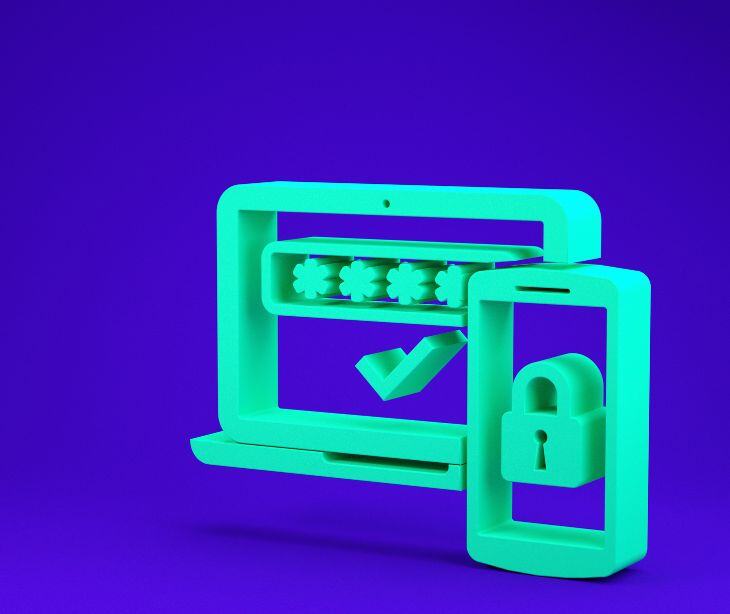
Encrypting ePHI at rest and in transit is a fundamental component of a strong security strategy for healthcare organizations, safeguarding sensitive patient information and ensuring compliance with regulations.
The vulnerability of ePHI
Electronically protected health information (ePHI) refers to any health-related data that can be identified with a particular individual and is recorded, transferred, or preserved electronically. This encompasses important information such as billings, medical history records, lab findings, and other necessary details relevant to healthcare service delivery.
ePHI is particularly vulnerable to unauthorized access, interception, and tampering. Consequently, without adequate protective measures in place, providers of healthcare risk breaching patient privacy. These consequences may include financial losses, reputational damage, and legal liabilities.
See also: HIPAA Compliant Email: The Definitive Guide
Value of ePHI
Attacks on healthcare businesses are not surprising, as protected health information (PHI) is one of the most valuable categories of information that cybercriminals target.
For example, estimations reported by Fierce Healthcare place the black market value of patient medical records between $250 and $1,000 per record. In comparison, the estimated value of a credit card number is $5, and the estimated value of a Social Security number is $1.
The role of encryption in ePHI security
Encryption safeguards against the risks associated with storing and transmitting ePHI. Encryption converts plain text into ciphertext through the use of a cryptographic key. Decryption, on the other hand, involves reversing this process to restore the original plaintext from its ciphertext form.
Encryption ensures that even if unauthorized individuals gain access to the data, cybercriminals cannot decipher it without the corresponding encryption key. Here is why ePHI must be encrypted at rest and in transit:
- Confidentiality: Encryption protects ePHI from unauthorized access. Without encryption, ePHI stored on servers or in transit over networks can be intercepted by malicious actors, leading to breaches of privacy and potential identity theft.
- Compliance: HIPAA mandates the protection of ePHI through various security measures, including encryption. Failure to comply with these regulations can result in hefty fines and legal consequences.
- Data integrity: Encryption ensures that ePHI remains unchanged and unaltered during transmission or while stored on devices.
- Risk mitigation: Encrypting ePHI reduces the risk of data breaches and cyberattacks. Even if attackers gain access to encrypted data, they would not be able to decipher it without the encryption key, thus minimizing the impact of a breach.
- Trust and reputation: Ensuring the security of ePHI through encryption enhances trust between patients and healthcare providers. Patients are more likely to trust organizations that demonstrate a commitment to protecting their sensitive information, thereby safeguarding the reputation of the healthcare institution.
- Protection across various platforms: Encryption should be applied consistently across all platforms and devices where ePHI is stored or transmitted, including servers, databases, mobile devices, and cloud services. This comprehensive approach ensures that ePHI remains secure regardless of the platform or location.
Read more: What is encryption?
FAQs
Is there a difference between encrypting data at rest and encrypting data in transit?
Encrypting data at rest involves securing information stored on servers, databases, or other storage devices. Encrypting data in transit involves protecting data as it travels between devices or across networks, such as through email, file transfers, or web browsing.
How can healthcare organizations verify that encryption is effectively protecting ePHI?
Healthcare organizations can verify the effectiveness of encryption by conducting regular security assessments, penetration testing, and audits of their encryption implementations. Additionally, monitoring and logging mechanisms can be used to track access to encrypted data and detect any unauthorized attempts to bypass encryption controls.
Is encryption alone sufficient to protect ePHI, or are additional security measures necessary?
While encryption is an essential security measure for protecting ePHI, it should be implemented as part of a comprehensive security strategy that includes additional safeguards such as access controls, authentication mechanisms, data loss prevention (DLP) tools, and security awareness training for staff. Layering multiple security measures enhances overall protection and reduces the risk of data breaches.
Subscribe to Paubox Weekly
Every Friday we bring you the most important news from Paubox. Our aim is to make you smarter, faster.




